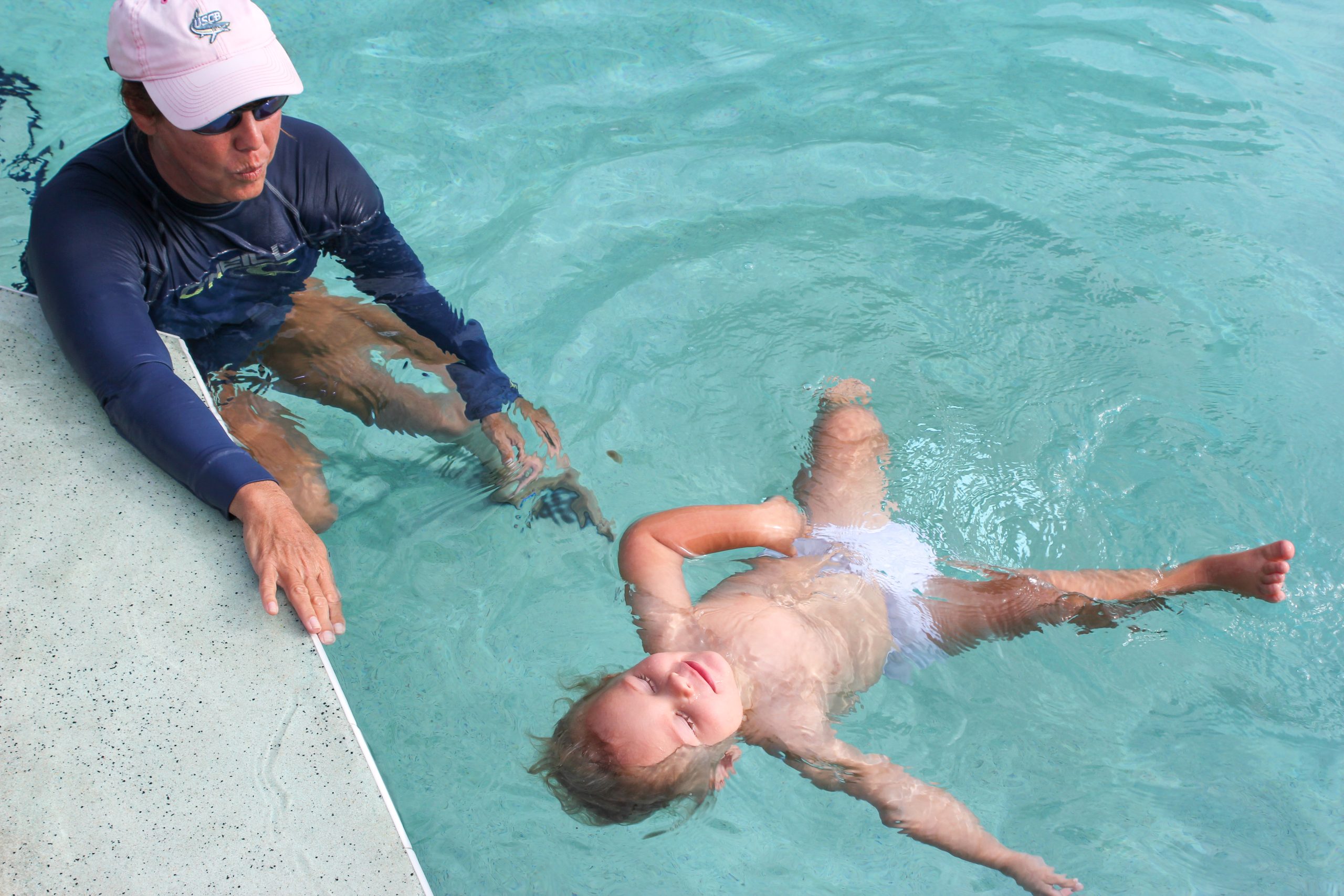
Imagine the following scenario: You’re on vacation with your family, and it’s after dinner. You’re in the kitchen cleaning up while the rest of the family plays and watches TV in the living room. Your instinct tells you it’s a bit too quiet, so you go to check on your toddler and realize he’s not there. You start looking around frantically and then your heart stops as you see the open door that leads to the pool. You rush outside, imagining the worst, only to see him floating on his back in the pool, crying but alive.
I present this not to scare you (trust me my heart is pounding just writing it), but to create awareness. Drowning is the number one cause of accidental death in children ages 1 to 4, and this year drownings are up 100 percent. It only takes seconds, and it can happen to anyone. Drowning does not care about race, gender, or socioeconomic status. A child can slip off the pool steps and into the water in a nanosecond. It is not like in the movies. It is silent.
So what do we do? How do we equip our children to save themselves in the event they sneak out of the house? How do we safely enjoy all the fun backyard pools and water toys we have all acquired during quarantine?

First, we make sure we have all the water safety checks in place. Take a look here for a list of safety checks for pools, hot tubs, boating, bathtubs, and the beach (and be sure to empty all inflatable pools EVERY time you use them, and turn them upside down).
The last and arguably most important layer of protection is water survival skills. In case all the other barriers of protection fail, skills that Infant Swim Resource (ISR) teaches can be priceless. With a mission of “Not One More Child Drowns,” there have been over 800 documented cases of lives saved, due to the skills taught by ISR’s certified instructors.
However, ISR has gotten somewhat of a bad rep, and I want to put that to rest. All three of my kids have gone through the program, and I am confident all three (currently ages 7, 6, and 3) can save themselves if necessary. My oldest started swim lessons when he was 21 months old, my older daughter when she was 18 months old, and my youngest when she was 7 months old.
Thank you to the help of Amy Pritchett, Senior Master Instructor, here are some answers to a few frequently asked questions about ISR.
How long do lessons last? What is the format?
ISR lessons are aimed at children ages 6 months to 6 years. Lessons are daily and last only 10 minutes. The first round of ISR lessons can take anywhere from 4–6 weeks. Repetition is key for young kids.
When you arrive at your lesson, your ISR instructor will have a discussion with you every day and complete what is called a BUDS (stands for bowels, urination, diet, and sleep) form. It asks several questions to ensure your instructor is providing the safest, most effective lesson for your child based on their needs.
After your child’s initial year in ISR, they will do a refresher/maintenance lesson every year. These usually last from 1–2 weeks. These are just as important as the first set of lessons. Kids grow VERY quickly, and their bodies change a lot. Refreshers help them adjust to their new height/weight in the water.
Isn’t ISR the method where they just throw the kid in the pool? What if my child cries during lessons?
As parents, we don’t like to see our kids upset, especially when they are young. Learning a new skill can be challenging, but this one is priceless. Think about it — how do young children communicate? They cry sometimes. So if your child cries during an ISR lesson, know that it’s normal, and once they get used to it they will stop fussing and be high-fiving their instructor before you know it! My oldest fussed a lot, my younger two barely at all! All three LOVE Ms. Amy, and the older two are sad they don’t get to see her anymore.
We wouldn’t dream of letting our kids crawl around the car while we are driving, even if they scream and fuss when we try to buckle them into their car seats. Likewise, we need to be willing to let them fuss a bit during their ISR lesson, as this is a survival skill, and can quite literally save their life.
And NO, your child is never thrown into the pool during an ISR lesson.
Infants ages 6–12 months old (they must be able to sit up independently to have lessons) are taught to roll from a vertical and/or face down posture onto their backs to float, where they can wait for help.
Once a child is about a year old they are taught to first grab the pool wall, over and over. Then after they understand the wall is where they want to go, the instructor teaches them to swim to the wall from a few feet away — then they put them in a floating position and teach them how to flip over and swim to the wall. It’s called the swim-float-swim. Ideally, they can swim-float-swim until they get to the edge of the pool/lake and get themselves out. If nothing else, they can float until help arrives.
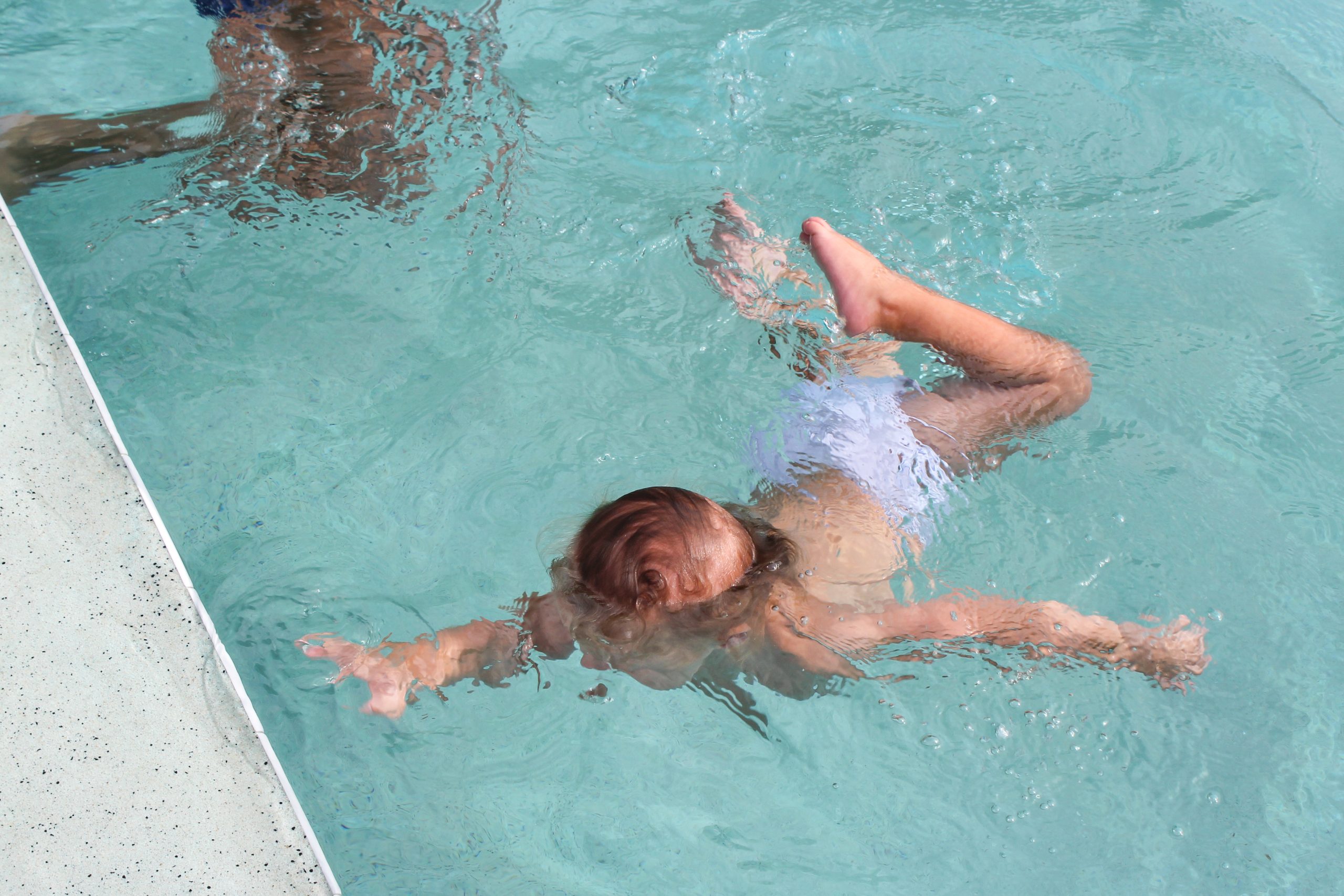
Your child will even do a test at the end of their set of lessons with full winter clothes on, so they know what if feels like if they would happen to fall in while wearing a diaper, shoes, and coat.
How do I trust this instructor that I’ve never met with my infant?
ISR has a rigorous program for instructors. Instructors go through a minimum of 6 weeks and 60 hours of training in the water with a master instructor. In addition, there is academic/learning time for about 15 hours a week for 8 weeks. This includes learning anatomy, child behaviorism, and safety protocols. Quizzes and tests are given as well. Instructors must be recertified every year.
Safety is ISR’s number one concern. During lessons, our instructor constantly checks your child’s tummy for how much air they swallow, and also for body temperature (they have a way of checking on your child’s foot). If their bellies get too much air, she ends the lesson early.
In addition, you are always welcome to come observe a few lessons and talk to your potential instructor before you sign up. You are never apart from your child during the lessons. I sat at the side of the pool for every single one of my kid’s lessons.
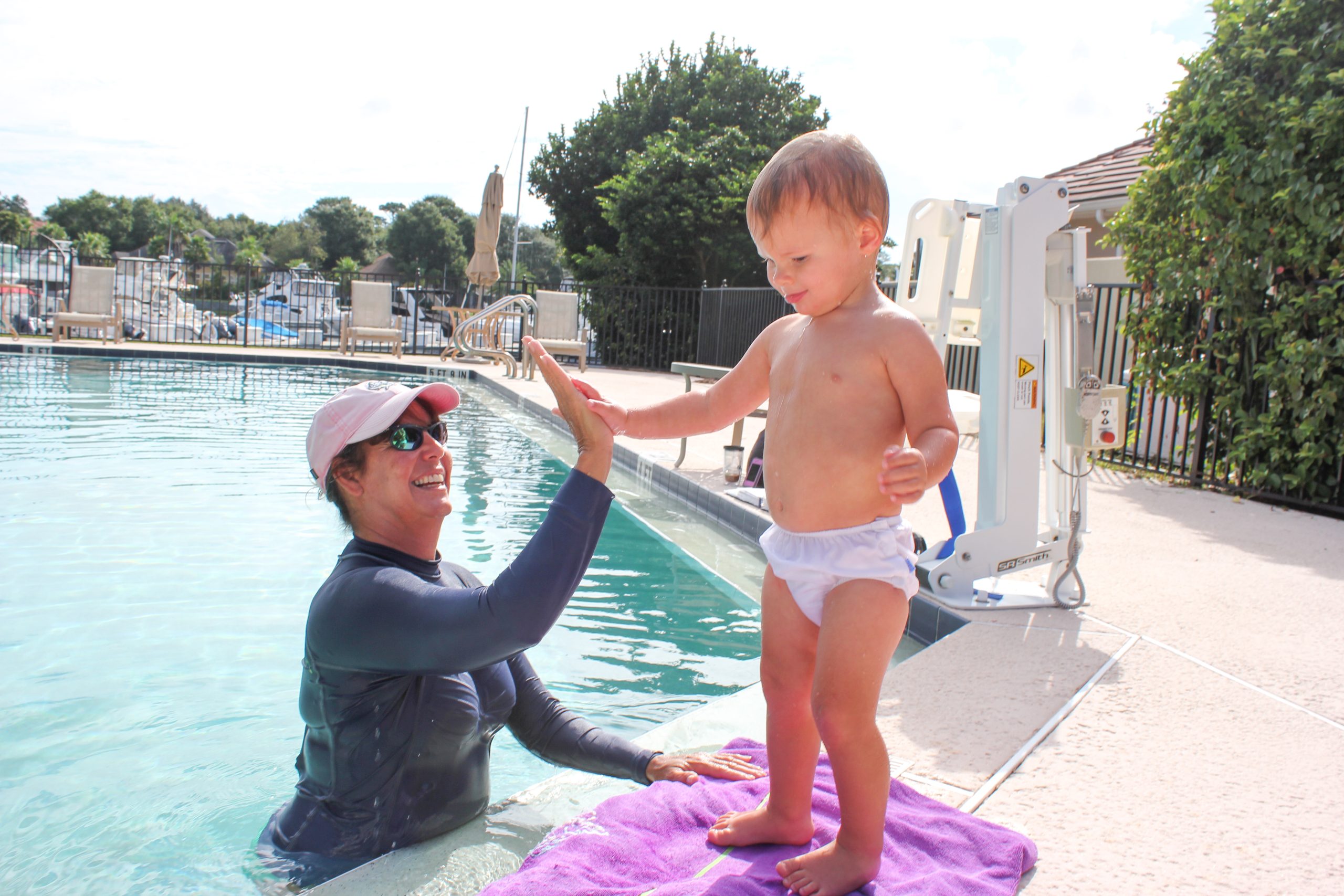
What if I work? Six weeks is a long time!
Most instructors will try and accommodate your work schedule, maybe letting you do lessons before you must go to work. Or maybe a trusted adult friend, family member, or spouse can help you out on days you can’t.
How do I go about putting my child in ISR lessons?
Go to the ISR website and put in your zip code to find an instructor. You will then register your child with the national ISR registry. ISR gives you quite a lengthy questionnaire about your child’s health and history. If anything isn’t “normal,” they don’t approve you right away. They run your information by their team of doctors and nurses and may ask you for more information before clearing your child to begin lessons.
I encourage you to become educated about the ISR program and seriously consider ISR lessons. We are in water so much here in Florida. Swimming (and specifically swimming and floating, so they are able to save themselves) is an essential skill that our children need to master. Water can be an amazing, fun, and enjoyable activity for the whole family! There is nothing like seeing your child swim safely across the pool, showing off their newfound skills. Likewise, there is no better comfort as a parent knowing if needed, your child can flip on their back and wait for help. We want to see drownings decline. ISR is helping to be sure that “Not One More Child Drowns.”
Be sure to check out our guide to Swim Lessons In & Around Jacksonville!
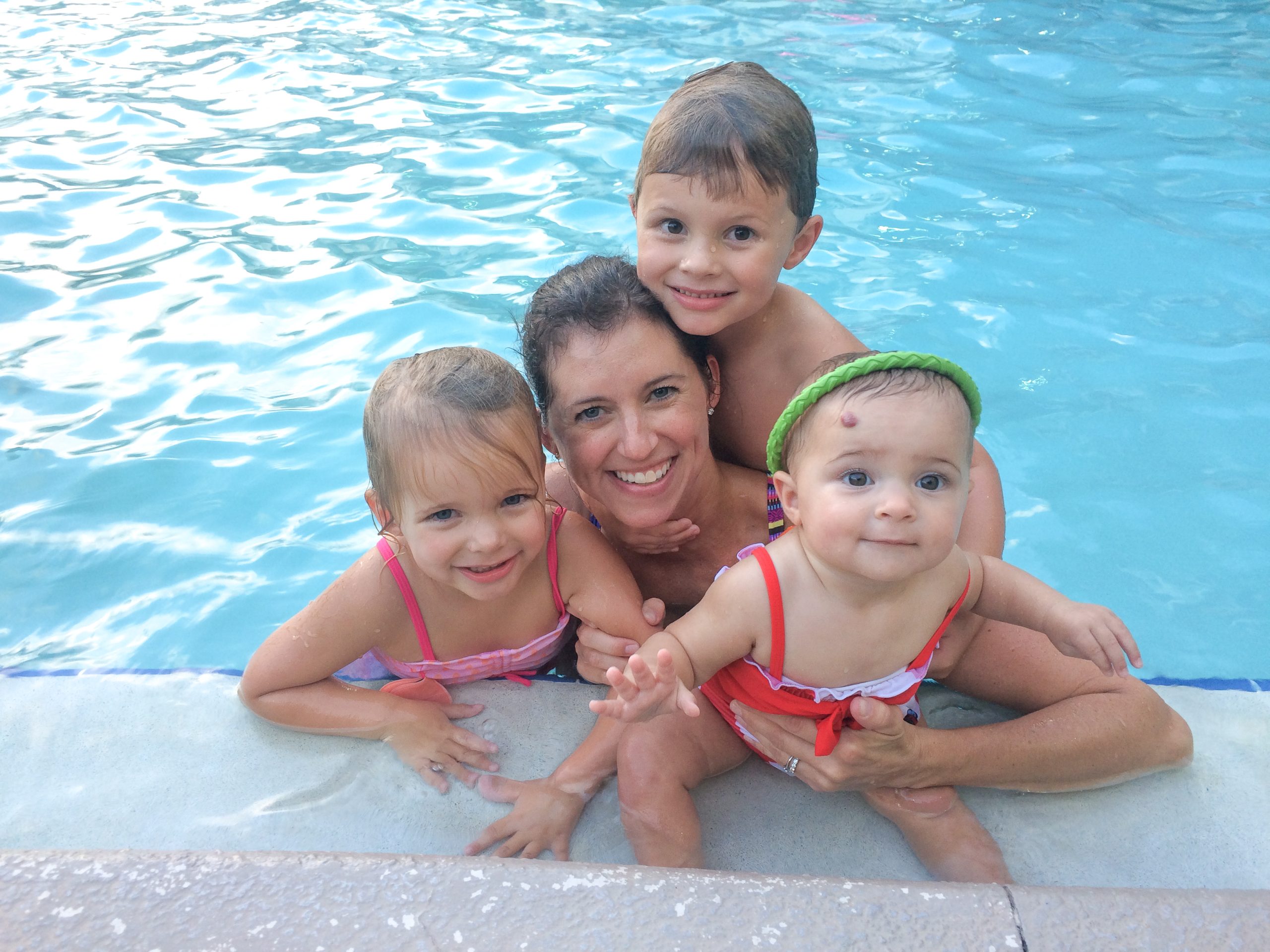
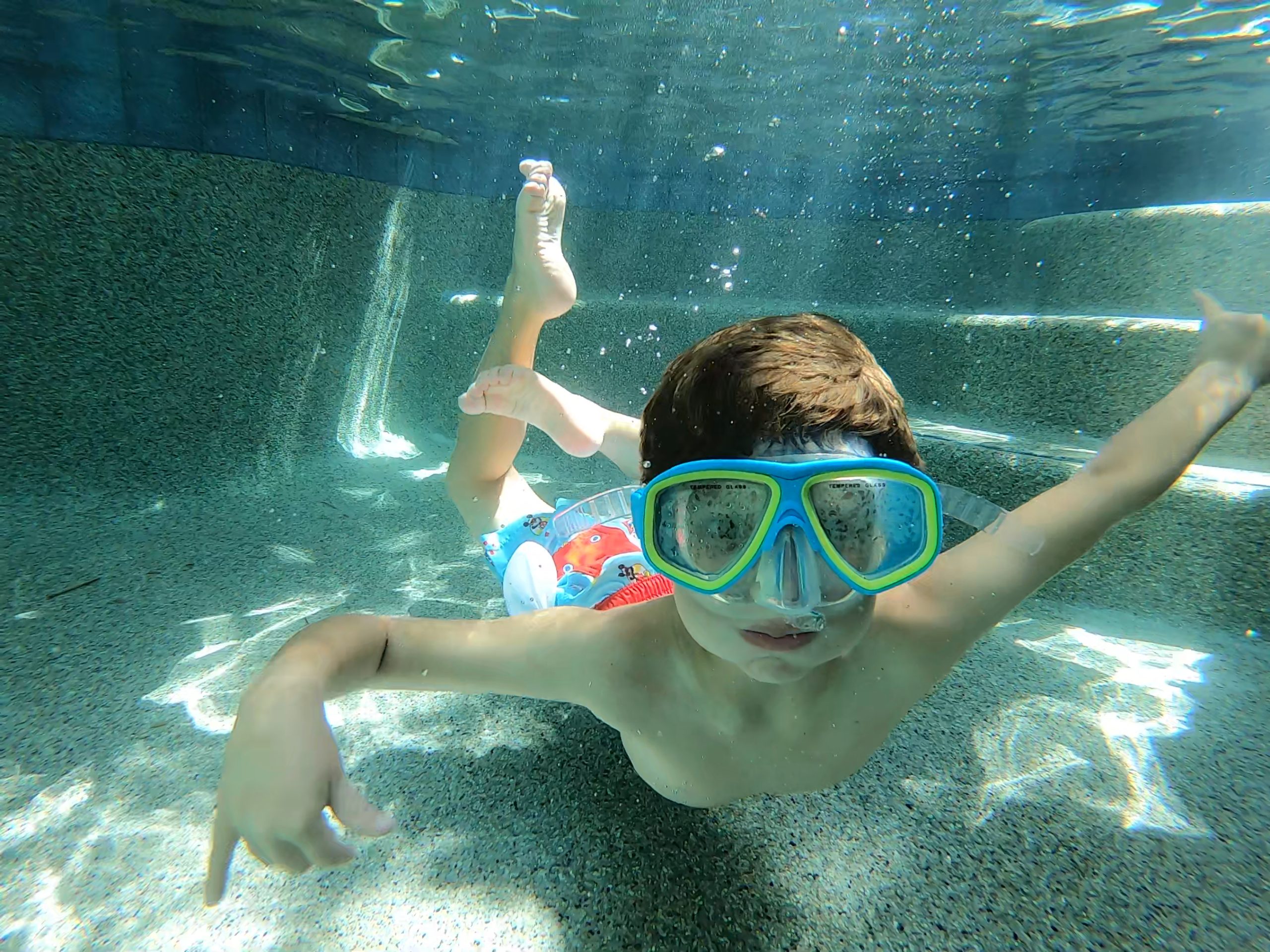
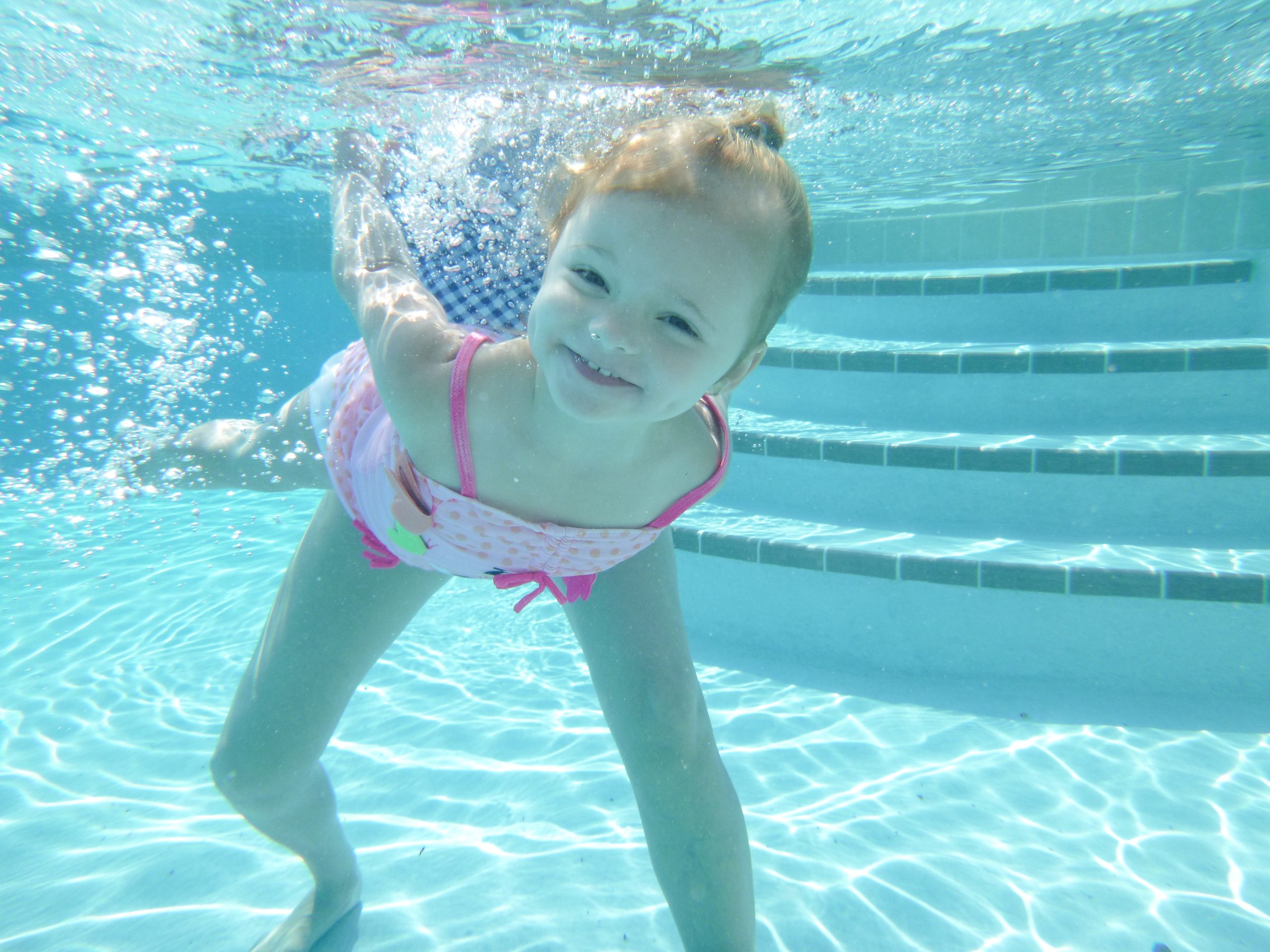
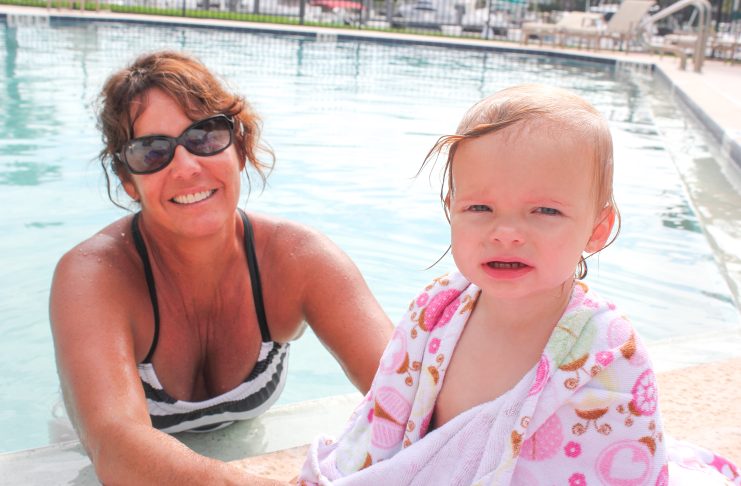

















Wow. What amazing information. I don’t have kids, but if I ever do, I know this is something that seems vitally important to pursue. Thank you so much for the information! It was clear and well-written.